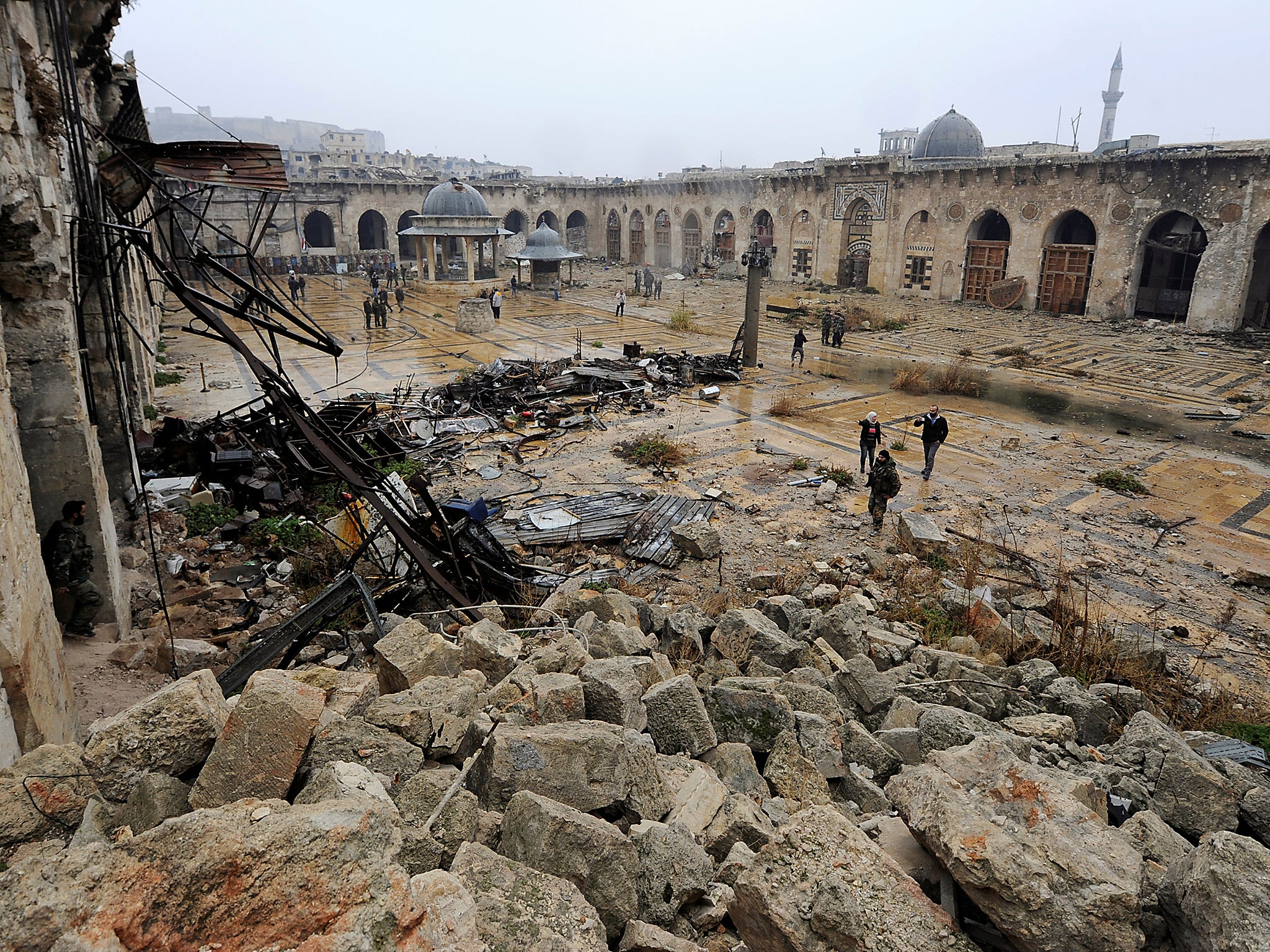The rebels of Aleppo will fight on, but Assad is taking their last power base in Syria
It may now be too late for a last stand, as happened in the city of Homs a couple of years ago


The defeat of the insurgents in east Aleppo came faster than was expected, though there are still some districts under their control. They were reported to number between 8,000 and 10,000 fighters in the enclave two weeks ago, of whom some 4,000 were experienced combatants belonging to Jabhat al-Nusra (formerly the al-Qaeda affiliate in Syria) and their close ally the Ahrar al-Sham group.
The weakness of the resistance is probably the result of being under intense artillery fire for over a month without the ability to retaliate. Though the Syrian government and Russian air strikes have been the main focus of the foreign media, it is shelling by artillery which does most of the damage in easy Aleppo and other besieged rebel strongholds in the rest of Syria.
The armed opposition were divided; different parties fought each other as recently as November. There was also probably a feeling among the rebels that the outcome of the battle was inevitable once it became evident that Turkey, Saudi Arabia and Qatar, their allies since 2011, were not going to do anything to support them.

The siege of east Aleppo only really got underway this summer in July when Syrian government forces cut the Castello road which had been the main supply route into the rebel zone. The rebels counter-attacked successfully in August when they broke through the government lines at Ramouseh in the south west of the enclave. The attackers were led by Nusra suicide bombers and suffered heavy casualties from air strikes, possibly losing as many as 500 dead. They did not have the firepower to keep the breach in the government encirclement open and the siege resumed on 21 September. The enclave began to contract rapidly under the impact of repeated attacks.
The Syrian government’s strategy since 2012, of surrounding rebel held zones and depopulating them through shelling and bombing, was dictated by lack of troops. But from September on the Syrian Army and paramilitary forces were numerous enough to keep up constant pressure on the rebels. It seemed possible that they would make a stand in heavily populated areas in the city centre where buildings are close together and streets are narrow. So far this has not happened. It may now be too late for a last stand, as happened in the city of Homs a couple of years ago.

There is a big contrast here with east Mosul where Isis has slowed the progress of the Iraqi army and counter-terrorism forces to a crawl, inflicting heavy casualties on them. The UN says the Iraqi army lost upwards of 2,000 dead in November alone, most of the losses being suffered in and around Mosul city.
A difference may have been that Isis is the only armed insurgent movement in Iraq, while in Syria the armed opposition is disunited, Isis had complete control of Mosul for over two years and was able to build up its defences, notably a network of tunnels, as well as recruiting hundreds of suicide bombers driving vehicles packed with explosives. It is the mass use of suicide bombers not anti-tank or anti-aircraft missiles that are essential to insurgent success against a heavily equipped enemy.
Rebels will fight on in Idlib, where they are likely to get support from Turkey, and in the south of Syria where they get aid though Jordan. But they have been losing their enclaves in Damascus as well as Aleppo, so the non-Isis forces will have difficulty continuing the struggle. What remains unclear is whether or not Isis will benefit from the defeat of the rest of the armed opposition.
Join our commenting forum
Join thought-provoking conversations, follow other Independent readers and see their replies
Comments
Bookmark popover
Removed from bookmarks